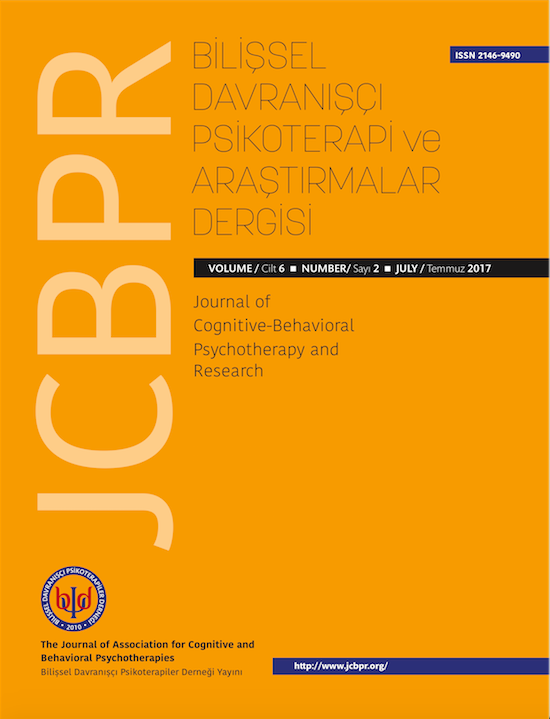
Bilişsel Davranışçı Psikoterapi ve Araştırmalar Dergisi
Yazarlar: Paul D. Loprinzi
Konular:
DOI:10.5455/JCBPR.14583
Anahtar Kelimeler:Memory consolidation,Memory encoding,Physical activity,Randomized controlled trial
Özet: The objective of this study was to comprehensively evaluate the experimental effects of acute moderate-intensity aerobic exercise on various episodic memory subtypes, including free, cued, serial recall and recognition. We employed a two-arm, between-subject randomized controlled experiment (Mage=20 y; N=20 per group), with participants engaging in a 15-minute moderate-intensity bout of aerobic exercise or engaged in a time-matched seated task. Free (including short- and long-term), cued, and recognition were assessed using the Buscheke Selective Reminding Task (BSRT), whereas serial recall was assessed using the Sentence Repetition Test (SRT). For immediate recall (5.95 vs. 6.00), total recall (11.68 vs. 11.57), number of trials to obtain 3 perfect trials from the BSRT (10.89 vs. 10.90), cued recall (9.16 vs. 10.05), recognition (12.0 vs. 12.0), delayed free recall (10.68 vs. 10.57) and serial recall (15.26 vs. 16.10), scores were not statistically significantly different (all Ps > .05) between the exercise and control groups. In this experiment we comprehensively evaluated the effects of acute moderate-intensity exercise on free, cued, serial recall and memory recognition. We did not observe any enhancement or detrimental effects of acute exercise on episodic memory function. Additional work is needed to disentangle the complex relationship between exercise and memory function, and in particular, evaluate potential moderators (e.g., sex, fitness level) of this paradigm.